In addition to increasing State capital in road traffic projects, there needs to be a mechanism for investors to see the effectiveness of their investment, according to National Assembly delegates.
On the afternoon of October 27, the National Assembly discussed in groups the draft Resolution on special mechanisms for investment in road traffic projects. According to the draft, the proportion of State capital participating in road traffic projects under the form of public-private partnership (PPP) is up to 70% of the total project investment, an increase of 20% compared to current regulations.
At the Ho Chi Minh City group, Mr. Tran Hoang Ngan said that increasing the proportion of State capital in the PPP transport project is reasonable, because the capital for land acquisition, compensation, and resettlement support accounts for a very high proportion. Therefore, increasing the proportion of State capital helps the project attract better resources, helps expand economic space, and creates momentum for socio-economic development.
The Law on Investment under the Public-Private Partnership (PPP) method stipulates that the maximum State capital in PPP projects is 50%. However, since this law took effect (2020), many expressway investment projects have been "stuck" and must be considered for transfer to public investment capital.
Mr. Nguyen Manh Hung, Standing Member of the Economic Committee, commented that increasing the State capital contribution to PPP projects to 70% would solve the problem of capital mobilization for the project, but what investors care about is the project's efficiency. According to him, if the project is effective, the private sector is willing to invest at a high rate, so in addition to increasing State capital, there needs to be a mechanism for investors to see the efficiency of their investment.
In addition, Mr. Hung asked the Government to clarify whether the increased State capital ratio in PPP projects includes compensation and site clearance or not.
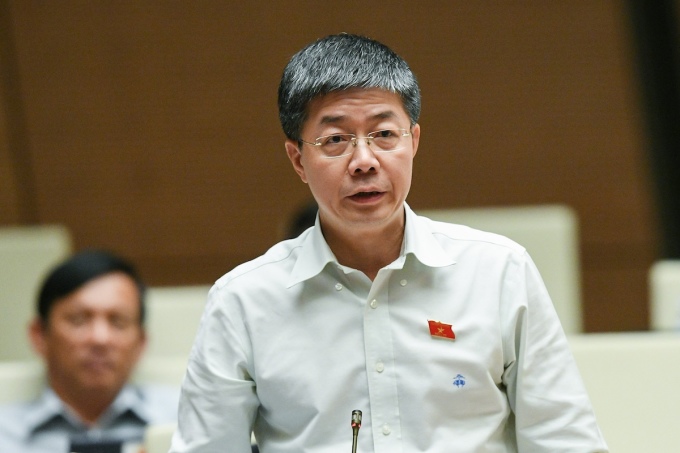
Mr. Nguyen Manh Hung, Standing Member of the Economic Committee. Photo: National Assembly Media
At this point, Minister of Transport Nguyen Van Thang, when speaking at the group, said that increasing the State capital ratio in PPP transport projects to a maximum of 70% is necessary. Regarding the viewpoint that whether increasing this ratio will increase investment attraction or not, Mr. Thang said that "it cannot meet the demand". However, waiting for the amendment of the PPP Law will take time, while many urgent transport infrastructure projects need to be accelerated to create momentum for economic growth.
"Increasing the State capital ratio in the short term will create better attraction for PPP projects, while keeping the current ratio of 50% is a limitation," said the Minister of Transport.
He further explained that investors often care about two conditions when deciding to invest in a road project, which are the project's efficiency and the progress of handing over the site to the investor. Currently, countries have separated the site clearance project into a separate project, meaning that when investors participate in a PPP project, they are given clean, available site.
Minister Thang said that currently, only transport investment projects in Group A (with capital of over VND2,300 billion) can be implemented because they are under the decision-making authority of the National Assembly. The remaining projects must wait for the amendment of the PPP Law to be able to separate site clearance into separate projects.
Regarding empowering localities to invest in expressway projects passing through many provinces and using the budget to implement the projects , according to delegates, it will speed up construction progress, put traffic projects into operation soon, as well as effectively exploit land funds and be flexible in using the budget.
However, Mr. Nguyen Huu Toan is concerned that the draft Resolution does not clearly state the responsibilities and criteria for a locality to be selected as the investment manager in such a case.
"The project goes through many localities and many provinces allocate the budget, transferring the budget to the same place, how will it be handled? The selection criteria and responsibility of local leaders are not clear," Mr. Toan said and suggested that the Government review and propose a mechanism to ensure feasibility.
Meanwhile, Ms. Nguyen Thi Quyen Thanh, Standing Deputy Secretary of Vinh Long Province, suggested that the Government evaluate the management capacity of some localities, especially those with large-scale transport projects. She noted that investors must have sufficient experience and the best capacity; administrative procedures should be eliminated, creating favorable conditions for localities to invest budget in infrastructure and regional connectivity.
Another special mechanism proposed by the Government is to allow investors and contractors to exploit mineral mines for common materials to avoid price increases and shortages of construction materials.
This policy, according to Ms. Nguyen Thi Suu, Deputy Head of the Thua Thien Hue delegation, is to open up more subjects to apply to investors, instead of just construction contractors as currently regulated. Ms. Suu is still unclear about the necessity of adding investors who are also allowed to exploit mineral mines, what is the difference between them and construction contractors.
On the other hand, the regulation that investors and construction contractors are responsible for assessing environmental impacts and improving the environmental landscape, according to the Deputy Head of the Thua Thien Hue delegation, is not enough. Because, in reality, recent mineral exploitation has left many negative consequences for the environment.
"In addition to requiring investors and contractors to fulfill their obligations to protect and restore the environment, there should be additional sanctions if they do not fulfill their commitments. This is to bind the responsibilities of investors and contractors in environmental protection," Ms. Suu suggested.
Mr. Nguyen Huu Toan, Deputy Chairman of the Finance and Budget Committee, shares the same opinion, because he believes that the investor here is understood as the person who puts money into the mining project and chooses the construction contractor.
"Why is there a mechanism for those who spend money to exploit minerals for construction materials and road construction? There is no basis for expanding the scope of investors," Mr. Toan commented.
The National Assembly will discuss this draft Resolution in the parliament on November 23 and vote to approve it on November 28.
Source link



![[Photo] Prime Minister Pham Minh Chinh chairs conference on anti-smuggling, trade fraud, and counterfeit goods](https://vphoto.vietnam.vn/thumb/1200x675/vietnam/resource/IMAGE/2025/5/14/6cd67667e99e4248b7d4f587fd21e37c)




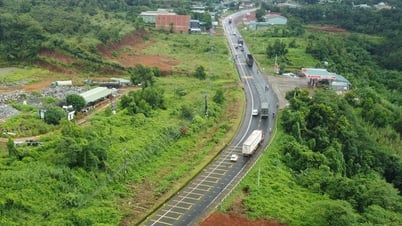




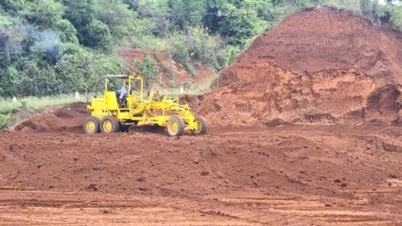
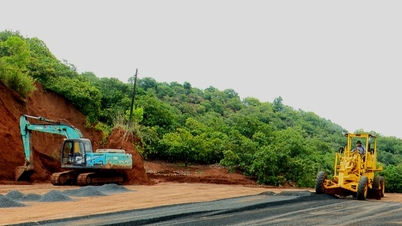


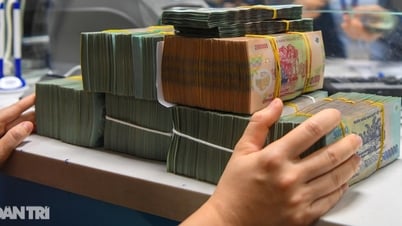

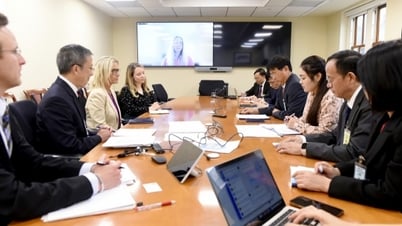


















































































Comment (0)